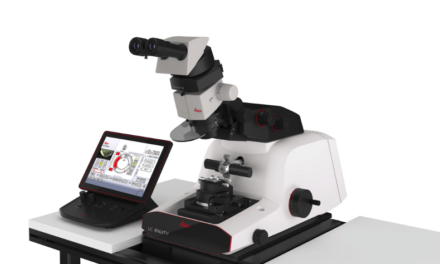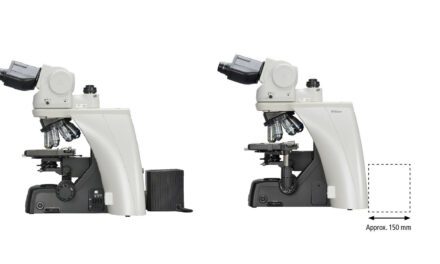Quest Diagnostics, Secaucus, NJ, and the precision testing company hc1, Indianapolis, have introduced a service to optimize the use of laboratory tests. Called Quest Lab Stewardship, the strategic collaboration will use the hc1 machine-learning platform to improve the clinical impact and cost of laboratory testing, both in and out of hospital settings.
The partnership’s goal is to make hospitals more efficient. Unnecessary medical services, inefficiently delivered care, and missed prevention opportunities contribute to an estimated $765 billion in annual healthcare waste.1 While laboratory testing accounts for between 2% and 3% of overall healthcare costs in the United States, ordering laboratory tests is the healthcare sector’s single highest-volume activity, Quest Diagnostics says. The overuse and underuse of clinical testing can have negative consequences for patients. For example, failed detection of disease can require more aggressive intervention later.
“While lab testing is fundamental to delivering cost-effective healthcare, opportunities remain to drive out clinical variation when looking across patient touchpoints in a health system,” says David Freeman, general manager for information ventures at Quest Diagnostics. “Working with hc1, we’ve created a solution that overcomes several of the traditional barriers to delivering real-time enterprise insights needed to drive and support at-scale optimization of lab testing. We’re taking a holistic approach to collaboration with hospitals and health systems, providing a scalable solution and a suite of associated services that will empower them to drive actionable insights that lead to measurable improvements in care, quality, and costs.”
The Cloud-based hc1 platform organizes volumes of live data such as laboratory results, genomics, and medications in order to ensure that the right patient gets the right test and the right prescription. The hc1 platform powers two flagship solutions, hc1 Lab CRM and hc1 Test Utilization. The platform also supports hc1Opioid Advisor and hc1 PGx Advisor for innovative precision prescription services.
In recent years, health systems and hospitals have implemented ‘test utilization’ programs to identify patterns in laboratory ordering trends. However, such programs often require time-consuming manual uploads of data or use platforms that cannot pull from disparate enterprise systems or provide real-time test ordering guidance.
Quest Lab Stewardship is designed to eliminate the limitations common to test utilization programs. It integrates in real-time with enterprise systems and leverages hc1’s machine-learning capabilities to gather, organize, and normalize laboratory data, alleviating the time and effort of manual data gathering and analysis. It also provides a framework for lab directors and hospital administrators to consult with medical staff to identify areas of concern and implement compendium updates and order-prompting based on selected clinical guidelines. Additional features include:
- Real-time enterprise system integration and data organization across electronic medical records (EMRs) and laboratory information systems (LISs), enabling rapid identification of problematic utilization patterns while driving proactive intervention.
- Creation of a systemwide normalized test compendium to remove the confusion of having multiple names for the same test across multiple compendia, enabling clear and precise reporting.
- Intuitively organized healthcare data, allowing leadership to analyze utilization trends for particular locations, providers, departments, and tests.
- Built-in, nationally recognized medical laboratory guidelines to help laboratory stewardship committees design and implement real-time test order prompting linked into existing enterprise systems and workflows.
The Quest Lab Stewardship program is intended as a guide to assist providers in identifying ordering patterns recommended by applicable third-party guidelines, the company says. The program is not intended to replace a treating provider’s medical judgement based on evaluation of the patient.
“The hc1 team is passionate about personalizing care delivery to improve outcomes and reduce medical spending,” says Brad Bostic, chairman and CEO of hc1. “This strategic collaboration between hc1 and Quest brings an innovative solution to progressive health systems that are committed to improving patient care and bringing down costs. I am thrilled that Quest selected the hc1 platform to address this critical need for optimized lab testing with their hospital and health system clients.”
The underuse and overuse of laboratory tests can adversely affect clinical decisions, prompting unnecessary or delayed procedures to address missed diagnoses, for example.2 While overutilization is often a focus of lab stewardship, a meta-analysis found that laboratory underutilization is also prevalent.3
“Lab stewardship is about more than lab testing and lowering costs of over-testing. It’s really about helping health systems to use lab services efficiently to deliver appropriate care while preventing the downstream consequences from unnecessary, costly procedures,” says Lee Hilborne, MD, MPH, DLM(ASCP), senior medical director for medical affairs at Quest Diagnostics and chair of the American Society for Clinical Pathology’s effective test utilization subcommittee. “We expect the Quest–hc1 solution will improve quality and care across a wide swath of the nation’s healthcare system that already refers their advanced diagnostic services to Quest.”
For more information, visit Quest Diagnostics and hc1.
References
- Nelson B. Healthcare’s main contributors to wasteful spending. The Hospitalist. 2015;(6). Available at: www.the-hospitalist.org/hospitalist/article/122351/healthcares-main-contributors-wasteful-spending. Accessed October 20, 2019.
- Gandhi TK, Kachalia A, Thomas EJ, et al. Missed and delayed diagnoses in the ambulatory setting: a study of closed malpractice claims. Ann Intern Med. 2006;145(7):488–496; doi: 10.7326/0003-4819-145-7-200610030-00006.
- Zhi M, Ding EL, Theisen-Toupal J, Whelan J, Arnaout R. The landscape of inappropriate laboratory testing: a 15-year meta-analysis. PLoS One. 2013;8(11):e78962; doi: 10.1371/journal.pone.0078962.





